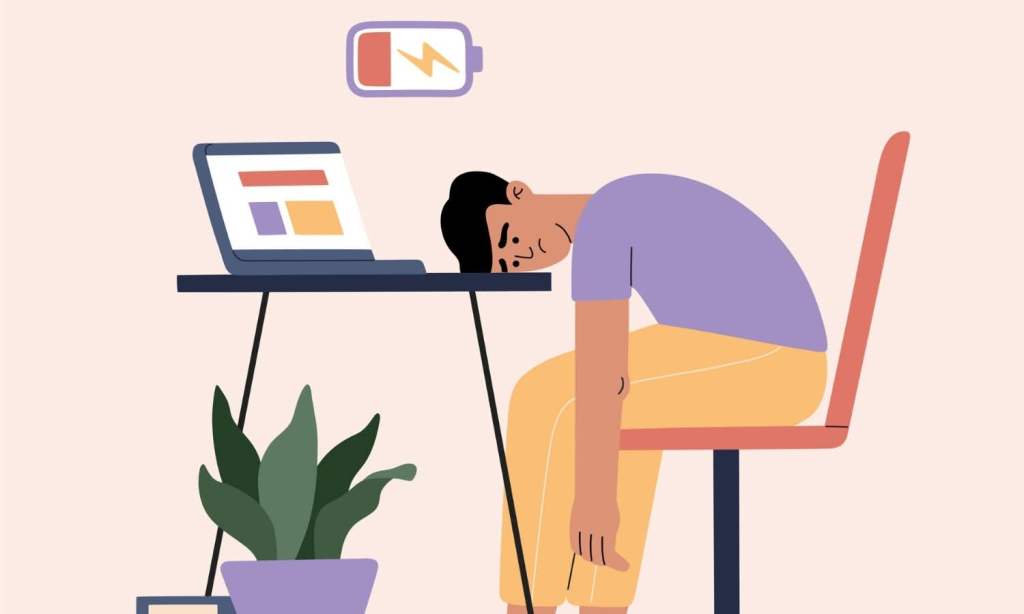Welcome to the third column by Luke Benedictus, Founder and Content Director of the-father-hood.com, a platform and community designed to help dads survive and thrive. Luke has over two decades of experience in the media industry and was previously the editor of Men’s Health, a brand he spent over 10 years with.
In his series titled The Paradox of Choice, Luke explores men’s mental health, burnout, and how to manage the mental load by giving you actionable points and his own tried and tested advice to help dads reset and reframe in 2021.
Last Friday, I got chatting to a middle-aged guy at a party who, with the slightly intense fervour of someone who’s drunk too many negronis, wanted to share a life-changing habit. After battling some health problems, he explained, every day he now went for a 10km walk.
To occupy his mind during these strolls, he’d listen to audiobooks on a variety of subjects ranging from self-help to philosophy. But he’d tweaked this process with a slight modification. In order to devour as much information as possible, he listened to these audiobooks at double speed. “They sound a bit like chipmunks,” he admitted. “But you get used to it after a while.”
In fact, speed-listening turns out to be on the rise. I’ve met someone else who did the same thing on his daily run (although he preferred business audiobooks and biographies of historical leaders). Both men mentioned this double-speed habit with a flicker of pride, as though they’d discovered a cunning short-cut to maximise their time. For them, a book was less a source of pleasure and stimulation than something to strip-mine for relevant intel and cranially download at the fastest possible speed.
This purported “life hack” is symptomatic of a modern phenomenon that continues to gain steady momentum. It’s another sign of the cult of productivity. Personally, I think it sucks.
Blame it on Tim Ferriss, The Bulletproof Executive or Mark Wahlberg bragging about his 4.30am workouts. But the cult of productivity has become increasingly entrenched in the public consciousness and aligned with our vision of success.
Generally allied to the quest for relentless self-improvement — optimise your body, expand your mind — it’s about making every second count and hitting peak efficiency at work and home. It involves embracing the “rise and grind” mindset, hyper-connection, the necessity of 24/7 busy-ness, and turning your weekend hobby into a financially viable “side-hustle”. All of which sounds pretty aspirational and sexy, doesn’t it? Except that it’s rarely sustainable and bloody exhausting.
Life, as the old adage goes, is a marathon, not a sprint, so you need to pace yourself accordingly. Most importantly, you need to learn how to regain control amid the chaotic head-rush of daily existence. That involves resisting what Jenny Odell describes as “a colonization of the self by capitalist ideas of productivity and efficiency”.
Odell writes those words in her book How to Do Nothing: Resisting the Attention Economy. She’s a Stanford professor and, for what it’s worth, a millennial who used to work in digital marketing, and her book is full of Very Big Ideas.
Modern life, she points out, has fragmented into a non-stop blitzkrieg of mental distractions. First up, is the growing obligation to be constantly productive that dissolves the boundaries between work, rest and leisure. In addition, Odell adds, we’re becoming increasingly enslaved to social media whose entire commercial model is founded on hijacking our attention.
Suffice to say, all this is not ideal. Odell points out these constant distractions are sabotaging our ability to truly notice things, both internally and externally, and making it harder for us to make considered decisions. The “externalities of attention economy distractions keep us from doing the things we want to do…” she writes. “Long term, they keep us from living the lives we want to live.”
Odell believes the solution to all this — as her book title suggests — is to spend more time doing, well, nothing. But this isn’t as passive as it sounds. Hitting the pause button gives you the chance for self-reflection and to form deeper and more meaningful connections with people, issues and ideas. All of which is a pretty valuable pursuit. But it demands the mental space to actually make it happen. That’s why, from time to time, you need to opt out.
“When overstimulation has become a fact of life, I suggest that we reimagine #FOMO as #NOMO, the necessity of missing out,” Odell writes. “Or if that bothers you, #NOSMO, the necessity of sometimes missing out.”
Obviously, this isn’t as simple as it sounds as anyone know who’s tried to put down their iPhone for more than, ooh, five minutes. Rather than twiddling your thumbs, what you really need to do is divert your mental energy into a calmer place. “The first half of ‘doing nothing’ is about disengaging from the attention economy,” Odell writes. “The other half is about re-engaging with something else.”
For Odell herself that “something else” is nature. She likes to go for long rambling walks and look at the birds. This is the mental oasis that allows her thoughts to unspool and re-gather. It’s a process that allows her frazzled mind to regenerate, like turning off an overheated computer.
What’s striking about Odell’s walks is that they constitute an end in themselves. There’s zero attempt at productivity and a conspicuous absence of double-speed audiobooks. Real-time can be more than enough, the author hints, once you remember how to open your eyes.







